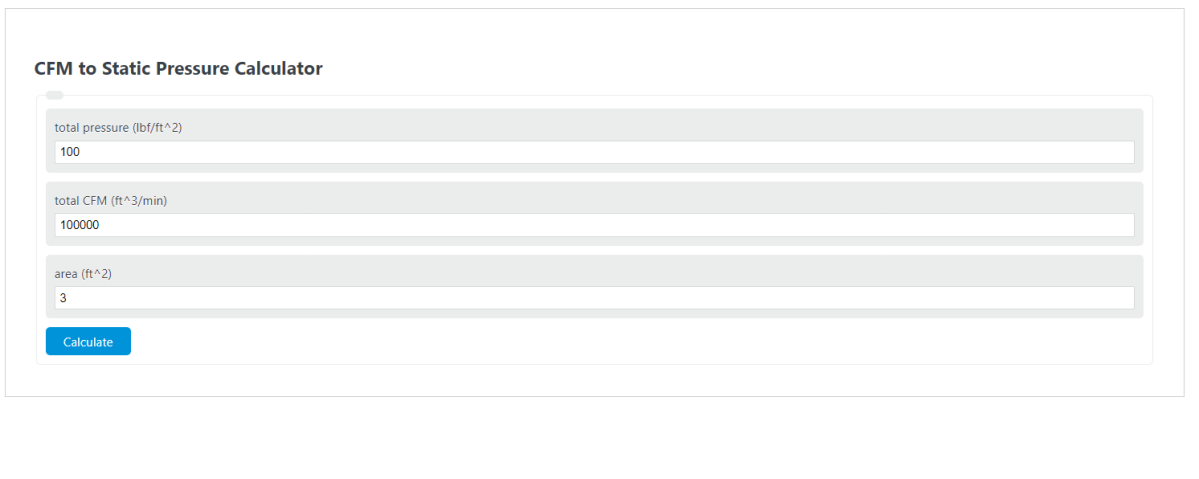Enter the total pressure (lbf/ft^2), the total CFM (ft^3/min), and the area (ft^2) into the calculator to determine the Static Pressure From CFM.
- All Pressure Calculators
- Station Pressure Calculator
- FPM (feet per minute) to CFM (cubic feet per minute) Calculator
- Pump Pressure Calculator
- Differential Pressure Calculator
- Surge Pressure Calculator
- Overburden Pressure Calculator
Static Pressure From CFM Formula
The following formula is used to calculate the Static Pressure From CFM.
Pstatic = Ptotal - ((CFM/A)/4005)^2
- Where Pstatic is the Static Pressure From CFM (lbf/ft^2)
- Ptotal is the total pressure (lbf/ft^2)
- CFM is the total CFM (ft^3/min)
- A is the area (ft^2)
To calculate the static pressure from CFM, divide the CFM by the area, divide the result by 4005, square this result, then finally, subtract this from the total pressure.
How to Calculate Static Pressure From CFM?
The following example problems outline how to calculate the Static Pressure From CFM.
Example Problem #1
- First, determine the total pressure (lbf/ft^2). In this example, the total pressure (lbf/ft^2) is given as 100 .
- Next, determine the total CFM (ft^3/min). For this problem, the total CFM (ft^3/min) is given as 30 .
- Next, determine the area (ft^2). In this case, the area (ft^2) is found to be 2.
- Finally, calculate the Static Pressure From CFM using the formula above:
Pstatic = Ptotal – ((CFM/A)/4005)^2
Inserting the values from above and solving yields:
Pstatic = 100 – ((30/2)/4005)^2 = 99.99 (lbf/ft^2)
Example Problem #2
Using the same method as above, determine the variables required by the equation. For this example problem, these are provided as:
total pressure (lbf/ft^2) = 500
total CFM (ft^3/min) = 40
area (ft^2) = 4
Enter these given values yields: Pstatic = 500 – ((40/4)/4005)^2 = 499.99 (lbf/ft^2)
